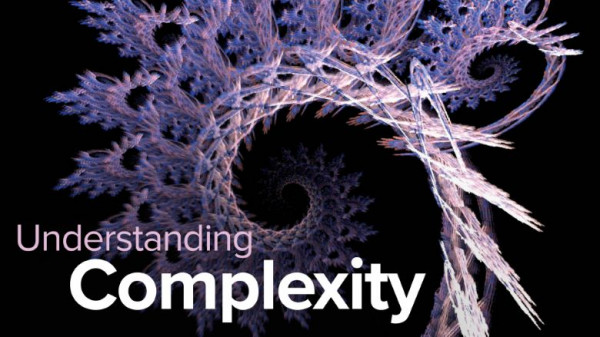
TTC - Understanding Complexity
Posted on 30 May 11:16 | by BaDshaH | 3 views

Last updated 5/2024
MP4 | Video: h264, 1280x720 | Audio: AAC, 44.1 KHz, 2 Ch
Genre: eLearning | Language: English | Duration: 12 Lessons ( 6h 9m ) | Size: 5.14 GB
Recent years have seen the introduction of concepts from the new and exciting field of complexity science that have captivated the attention of economists, sociologists, engineers, businesspeople, and many others.
These include
tipping points, the sociological term used to describe moments when unique or rare phenomena become more commonplace;
the wisdom of crowds, the argument that certain types of groups harness information and make decisions in more effective ways than individuals;
six degrees of separation, the idea that it takes no more than six steps to find some form of connection between two random individuals; and
emergence, the idea that new properties, processes, and structures can emerge unexpectedly from complex systems.
Interest in these intriguing concepts is widespread because of the utility of this field. Complexity science can shed light on why businesses or economies succeed and fail, how epidemics spread and can be stopped, and what causes ecological systems to rebalance themselves after a disaster.
In fact, complexity science is a discipline that may well hold the key to unlocking the secrets of some of the most important forces on Earth. But it's also a science that remains largely unknown, even among well-educated people.
Now you can discover and grasp the fundamentals and applications of this amazing field with Understanding Complexity. Professor Scott E. Page-one of the field's most highly regarded teachers, researchers, and real-world practitioners-introduces you to this vibrant and still evolving discipline. In 12 lucid lectures, you learn how complexity science helps us understand the nature and behavior of systems formed of financial markets, corporations, native cultures, governments, and more.
What Makes a System Complex?
What defines a system as complex, as opposed to being merely
Homepage
https://www.thegreatcourses.com/courses/understanding-complexity
https://rapidgator.net/file/53f4a07616f073a03d6c32a41b9042e5
https://rapidgator.net/file/4e83f29bf4c8ae0090b43b73c0ab7f2c
https://rapidgator.net/file/7ba582ad3088b3569e0ac49afd90c23e
https://rapidgator.net/file/3ecc267313d11037c0668c58d3bdfd25
https://rapidgator.net/file/045aaa311e7564ebcd5d612ce4063841
https://rapidgator.net/file/c771de5078f5ce76cbcf529e7d9e347d
https://nitroflare.com/view/90FB1E9E36EE238
https://nitroflare.com/view/C963469C6A6FAD1
https://nitroflare.com/view/95F232989AAB645
https://nitroflare.com/view/76BB3F286902D15
https://nitroflare.com/view/426C48662DD4C5F
https://nitroflare.com/view/5BF4AF339DCF03D
Related News
System Comment
Information
 Users of Visitor are not allowed to comment this publication.
Users of Visitor are not allowed to comment this publication.
Facebook Comment
Member Area
Top News



